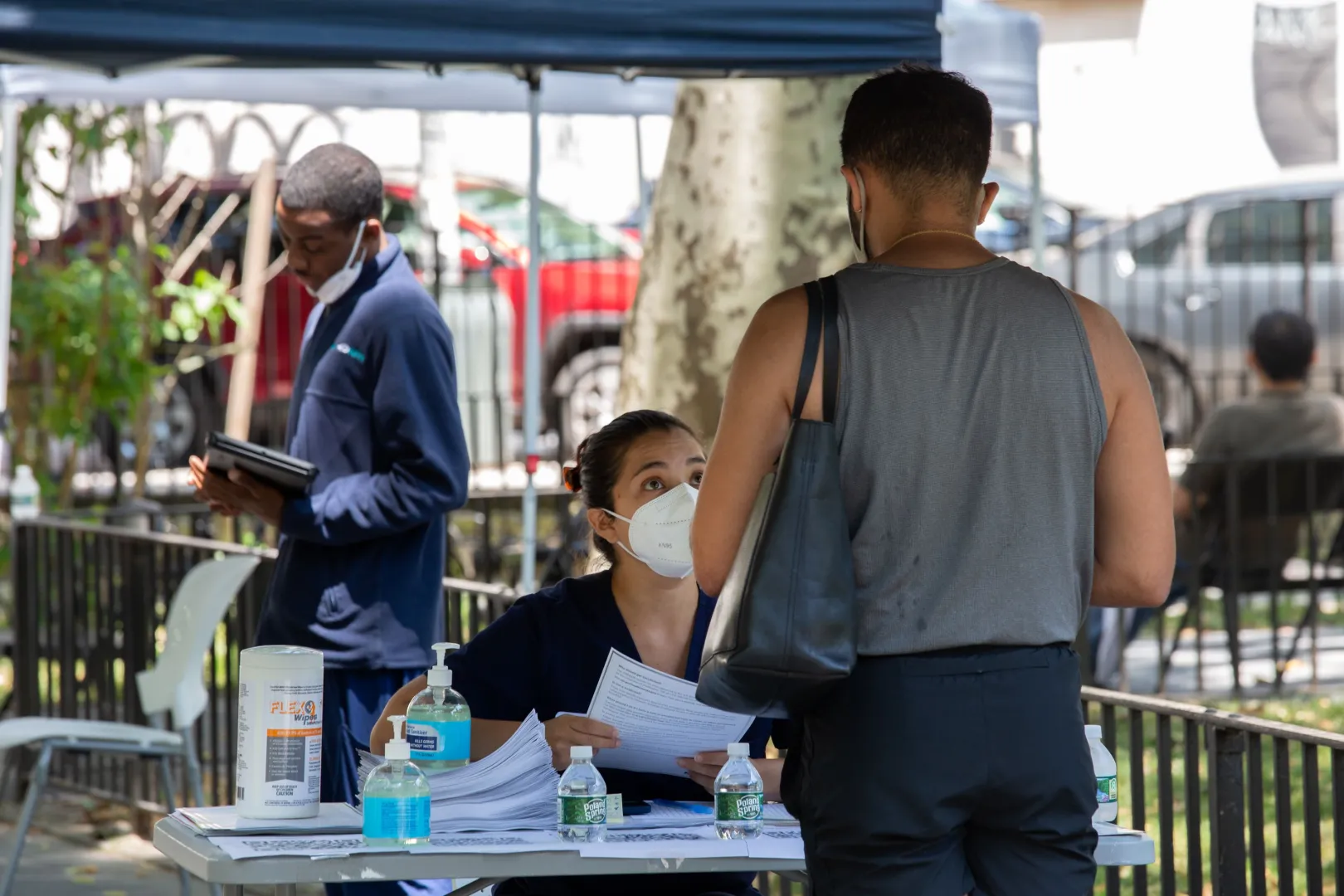More monkeypox vaccines are coming to NYC. Should you get vaccinated — and how?
Your guide to all things monkeypox — now a “public health emergency” in the city — from symptoms to where to get vaccinated.

Workers sign in patients waiting to get a monkeypox vaccine at the Chelsea Sexual Health Clinic, July 11, 2022. Photo: Ben Fractenberg/THE CITY
 This article was originally published on by THE CITY
This article was originally published on by THE CITY
The rollout of the monkeypox vaccine in New York City has been riddled with technical difficulties, communication issues and a major shortage of doses.
When the first 1,000 doses arrived at the Chelsea Sexual Health Clinic in early June, appointments were filled almost immediately. The people who booked them waited for hours in long lines at the clinic as the demand for the vaccine far exceeded the supply.